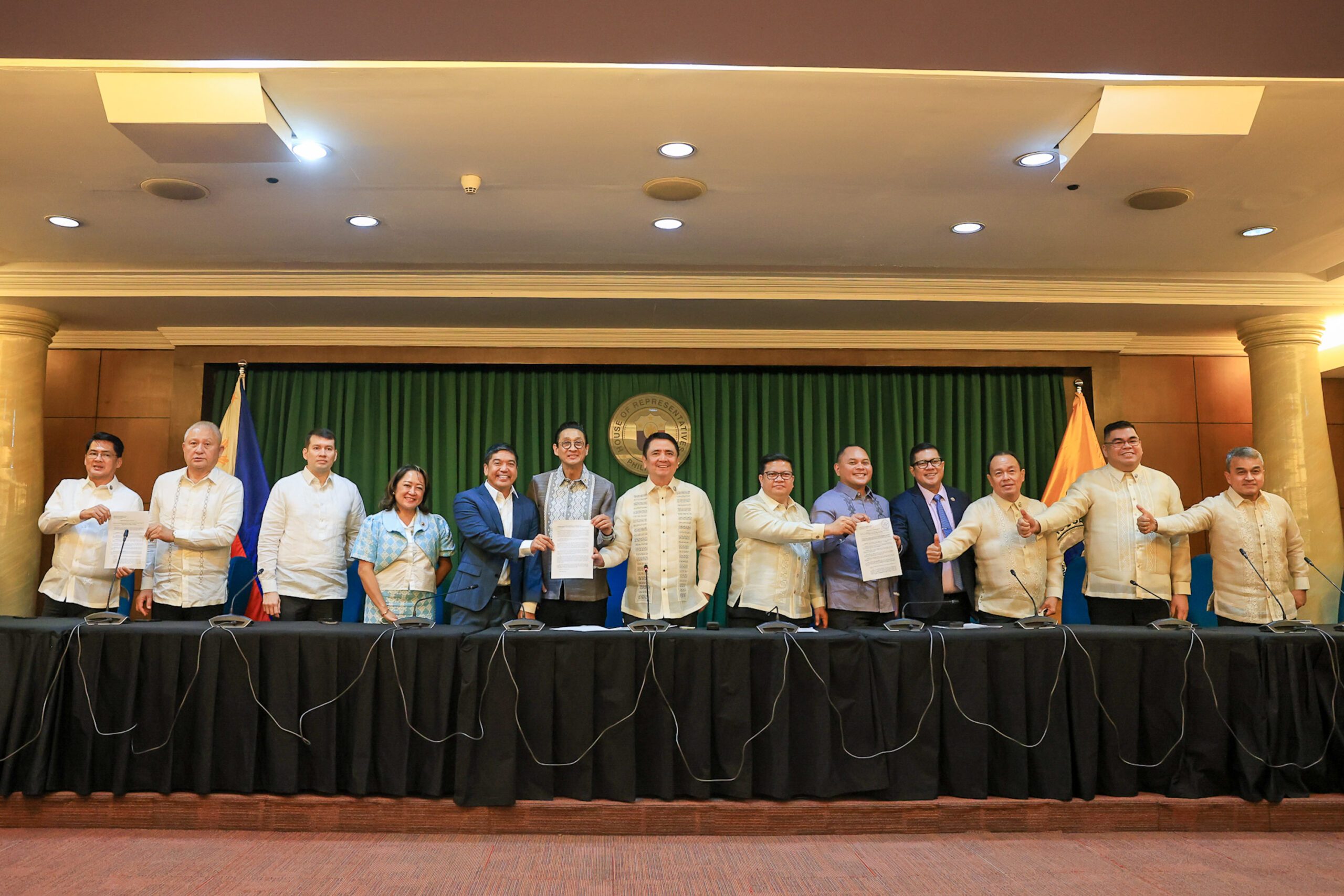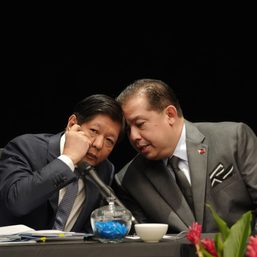SUMMARY
This is AI generated summarization, which may have errors. For context, always refer to the full article.

MANILA, Philippines — Hoping to speed up amending the Constitution, majority leaders in the House of Representatives filed their version of a Resolution of Both Houses (RBH) proposing changes in the charter. This House-initiated document all but mirrors the Senate resolution filed last month.
Both the Senate’s RBH No. 6 and RBH No. 7 of the House will propose similar economic amendments. The two differ though in one contentious line. It is the part that says “each House vote separately” on the amendments.
House leaders vowed their full support of the Senate’s RBH6 as early as January, with Deputy Speaker Manuel Jose “Mannix” Dalipe saying the lower chamber “will no longer ask for any debates” on the Senate’s proposed provisions.
Fully committing to backstop RBH6, Dalipe, together with Senior Deputy Speaker Aurello Gonzales, and Deputy Speaker David Suarez, filed on Monday, February 19, the near-replica RBH7.
Monday’s RBH7 likewise opens up the country’s economy to foreign investors, specifically in the education and advertising sectors.
“Our RBH proposals are in toto to the Senate RBH,” said Gonzales, who also represents the 3rd legislative district of Pampanga.
The point of the House leaders in having near-clone resolutions is to expedite the charter change process. Since they said they would agree with whatever the senators want, the lower house does not have to wait for the Senate to conclude their deliberations.
With RBH7, the lower house can now also start their deliberations.
“Parehong pareho po. Kailangan na rin namin pag-usapan ang mga proposed amendments at sabayan ang Senado para mapabilis ang proseso lalo na ang target ng Senado na sabi ni Senate President Migz [Zubiri] ay matatapos nila bago mag-Holy Week.”
(It is exactly the same. We also need to start discussing the proposed amendments while the Senate is having its own sessions so we can expedite the process especially after Senate President Migz said they are eyeing to finish everything before Holy Week.)
Voting jointly?
RBH7 and RBH6 both propose amendments only to specific economic provisions. A copy of RBH7 has already been furnished to the Senate during plenary.
But the small difference which could be the biggest obstacle preventing both chambers from reaching an agreement is this: the variation filed by House lawmakers omitted the Senate’s version of having “each House vote separately” on the amendments.

In raising alarm over the People’s Initiative for charter change, Senate President Miguel Zubiri noted that the public petition was pushing for the two houses to vote jointly.
“While it seems simple, the goal is to make it easier to revise the Constitution by eliminating the Senate from the equation,” Zubiri said on January 23.

The Senate is adamant that the two houses of Congress would vote separately on amendments as the congressmen’s votes would easily outnumber the Senate’s 24 votes.
Easier process?
Suarez said they filed RBH7 as a means of “hastening the process” so that the proposed economic amendments are tackled by both houses of Congress simultaneously. Some congressmen also have questions for resource persons who were not queried by the senators.
Camarines Sur 2nd District Representative Luis Raymond Villafuerte said proposing the exact same changes as the Senate would also make it easier for lawmakers.
“We would rather work with what the Senate wants to amend so there’s a basis of agreements because can you imagine [if] we propose five amendments and them, three? It might prolong the process but in this case, the House of Representatives already adopted the three exact provisions that our counterparts in the Senate wants to amend,” Villafuerte said in mixed English and Filipino.
Congressmen now have the option to convene as a committee of the whole to tackle the proposals. Surigao del Norte 2nd District Representative Robert Ace Barbers said having discussions and debates in the presence of all congressmen would allay the fears of those wary of amending the constitution. Barbers said the presence of all congressmen elevates the level of discourse, instead of having discussions at the committee-level first.
Dalipe though said they would have to wait for a go signal.
“We will wait for the RBH7 to be referred by the bills and index division to the plenary and subsequently to the committee on rules or depending on the pleasure of the plenary,” said Dalipe, who also chairs the committee on rules.
“By then, we will be able to say if we will convene as a committee of the whole house.”
Another deadline?
Congressmen said they cannot give a specific timeline for the discussion and the passage of RBH7.
Suarez said the lower chamber has “more or less three or four months of legislative time to act or tackle” the proposal.
“As to the timeline, we cannot say yet but we will try our best to really work double-time on this and if it means we have to extend our working hours in trying to hear everything, then we will do (that),” Dalipe said. – Rappler.com
1 comment
How does this make you feel?











![[WATCH] Bamban POGO scandal: There’s a bigger fish than Alice Guo](https://www.rappler.com/tachyon/2024/07/inside-track-tcard-bamban-pogo.jpg?resize=257%2C257&crop=435px%2C0px%2C1080px%2C1080px)
Looks like a long-running psychological war between our two chambers of Congress. But one variation is noteworthy: “… the variation filed by House lawmakers omitted the Senate’s version of having ‘each House vote separately’ on the amendments.” Why is the House of Representatives not contended with the Senate’s version?